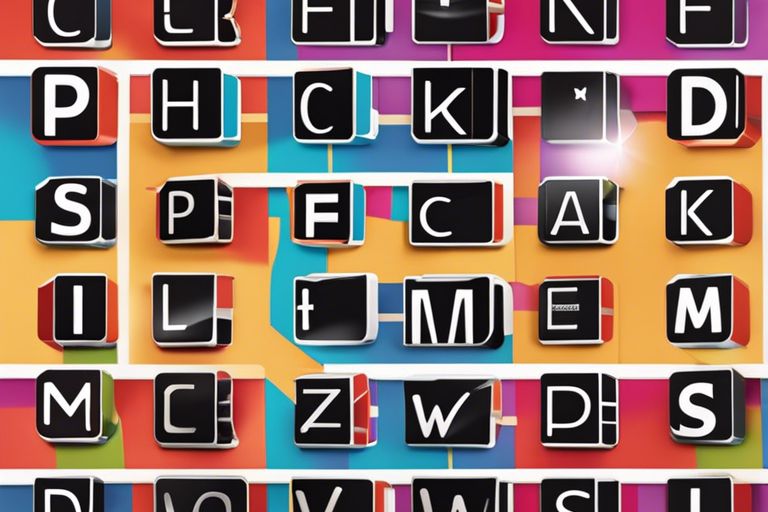Most adults who struggle with reading and literacy may find it comforting to know that effective phonics programs are designed specifically for their needs. These programs cater to individuals who may have missed out on learning phonics at a young age or simply need a refresher. Adults can use a systematic approach to teaching phonics to improve their reading, spelling, and overall literacy skills in a structured and supportive environment. In this blog post, we will explore some of the most recommended phonics programs for adults and how they can benefit from them.
Key Takeaways:
- Phonics programs can be effective for adults: They can help adults improve their reading and spelling skills, especially if they struggle with decoding words.
- Structured and intensive phonics instruction is essential: Adults benefit from structured phonics instruction tailored to their specific needs and goals. Intensive practice is necessary for improvement.
- One-on-one and small group instruction can be beneficial: Adults may benefit from individualized instruction or small group settings where they can receive focused attention and support from a teacher or tutor.
- Multisensory approaches can enhance learning: Using a variety of senses, such as visual, auditory, and kinesthetic, in phonics instruction can help adults grasp concepts more effectively.
- Consistent practice is vital: Regular practice outside formal instruction is crucial for adults to solidify their phonics skills and become proficient readers and spellers.
Evaluating Phonics Programs for Adults
If you’re considering an adult phonics program, evaluating its effectiveness is crucial. Adult learners have unique needs and learning styles, so not all phonics programs cater to these requirements equally. You can decide which program best suits your needs by understanding the critical components of an effective phonics program and the research behind adult literacy programs.
Critical Components of an Effective Phonics Program
Phonics programs for adults should incorporate a systematic and explicit approach to teaching phonics skills. This means breaking down the complexities of the English language into manageable components, such as letter-sound relationships and decoding strategies. A structured program that builds upon foundational skills and provides ample practice opportunities is essential for adult learners to grasp phonics concepts effectively.
Furthermore, adult phonics programs should offer engaging and relevant content that resonates with the learners. Real-world examples and practical applications of phonics skills can enhance the learning experience and motivate adults to persist in their studies. A supportive learning environment with qualified instructors who can provide individualized feedback and guidance is also crucial to the success of a phonics program for adults.
Research and Evidence on Adult Literacy Programs
The effectiveness of phonics programs for adult learners has been supported by research and evidence in adult literacy. Studies have shown that phonics instruction can significantly improve reading and spelling skills in adult learners, leading to enhanced literacy outcomes. Adult learners who receive structured phonics instruction demonstrate greater confidence in their reading abilities and are better equipped to tackle complex texts.
The research on adult literacy programs underscores the importance of targeting phonics skills in adult education. By addressing phonics deficits and providing explicit instruction in decoding and word recognition, adult learners can make substantial gains in their literacy skills and ultimately achieve tremendous success in their personal and professional lives.
Popular Phonics Programs for Adults
Even as adults, it is never too late to improve literacy skills through phonics programs specifically designed for adults. These programs help enhance reading and writing abilities and boost confidence in everyday tasks requiring strong literacy skills. Let’s explore some popular phonics programs that have proven effective for adult learners.
Structured Literacy Programs
Structured literacy programs are at the top of the list for effective phonics instruction for adults. These systematic and explicit programs break down language concepts into manageable parts. Structured literacy programs often incorporate multisensory activities, such as writing, listening, and speaking, to reinforce phonics principles effectively. Popular programs like the Wilson Reading System, Orton-Gillingham, and Barton Reading & Spelling System have all shown success in helping adults improve their phonics skills and overall literacy proficiency.
Additionally, structured literacy programs are flexible and can be tailored to meet individual needs and learning styles. Whether an adult learner is starting from scratch or looking to enhance existing skills, structured literacy programs provide a comprehensive approach to mastering phonics and decoding strategies.
Computer-Based and Online Phonics Resources
Literacy development is also supported by computer-based and online phonics resources that offer interactive and engaging activities for adult learners. These resources can be accessed anytime, anywhere, making it convenient for adults to practice phonics skills at their own pace. Programs like Reading Horizons, Lexia Core5, and Phonics Hero are popular choices for adults seeking to improve their reading and spelling through digital platforms.
Among the benefits of computer-based and online phonics resources are the immediate feedback and progress-tracking features that allow adult learners to monitor their improvement and stay motivated throughout their literacy journey. These resources often incorporate game-like elements to make learning phonics enjoyable and effective.
Implementing Phonics Programs in Adult Education
Classroom Strategies for Adult Learners
Implementing phonics programs in the adult education setting requires tailored strategies to meet the unique needs of adult learners. One practical approach incorporates real-world examples and texts relevant to adults’ daily lives. This can include workplace documents, health forms, or practical reading materials that adults encounter regularly.
Additionally, incorporating interactive and engaging activities such as group discussions, role-playing exercises, and word games can help adults stay motivated and actively participate in their learning. Breaking down complex phonics rules into manageable chunks and providing plenty of practice opportunities can also enhance learning outcomes for adult students.
Considerations for Individual Learning
An essential aspect of implementing phonics programs for adult learners is recognizing individuals’ diverse learning needs and preferences. Understanding that adults may have varying phonemic awareness and decoding skills is crucial in designing personalized learning plans. Tailoring instruction to address specific challenges or gaps in phonics knowledge can help adults progress significantly in their reading abilities.
Furthermore, providing ongoing feedback and support to adult learners is critical to their success in a phonics program. Offering one-on-one tutoring sessions, progress assessments, and opportunities for self-paced learning can help individuals build confidence and improve their reading proficiency.
When considering individual learning in phonics programs for adults, it’s essential to consider factors such as learning styles, prior educational experiences, and personal goals. By conducting initial assessments and regularly evaluating progress, educators can adjust instruction to meet the unique needs of each learner and ensure optimal outcomes.
Classroom strategies and considerations for individual learning play a significant role in successfully implementing phonics programs for adults. By employing tailored approaches and personalized instruction, educators can create a supportive learning environment where adult learners can develop their phonics skills effectively.
Overcoming Barriers
Addressing Motivation and Confidence in Adult Learners
Motivation and confidence are crucial in adult learning, especially when mastering phonics. Many adult learners may have experienced challenges with reading in the past, leading to frustration and self-doubt. Educators need to address these emotional barriers effectively.
One way to boost motivation is by setting achievable goals tailored to the learner’s pace and capabilities. Celebrating small victories can help build confidence and create a positive learning environment. Encouraging adult learners to reflect on their progress and acknowledge their improvements can also fuel their motivation to continue on their phonics learning journey.
Tailoring Programs to Meet Diverse Adult Learner Needs
With adult learners, one size does not fit all regarding phonics programs. Educators must tailor their approach to meet the diverse needs of adult learners. Some individuals may benefit from visual aids, while others prefer a more interactive or hands-on approach. Understanding each learner’s unique learning style and preferences is critical to designing an effective phonics program for adults.
A personalized approach can incorporate real-life examples and practical exercises relating to the adult learner’s interests or daily experiences. Educators can help adult learners stay motivated and committed to improving their phonics skills by making the learning material relevant and engaging.
Final Words
Now, while many phonics programs are designed for children, there are also effective phonics programs available for adults. Programs such as Wilson Reading System, Orton-Gillingham, and Barton Reading & Spelling System have shown success in helping adults improve their literacy skills through a structured and systematic approach to teaching phonics. These programs are designed to meet the unique needs of adult learners and provide a solid foundation for improving reading and spelling skills. By utilizing proven methods and strategies, adults can enhance their knowledge of phonics and become more proficient readers and spellers.
FAQ
Q: Is it possible for adults to learn phonics effectively?
A: Adults can learn phonics effectively through structured phonics programs designed for their learning needs.
Q: What are some effective phonics programs for adults?
A: Programs such as the Wilson Reading System, Orton-Gillingham Approach, and Hooked on Phonics have proven effective for adults learning phonics.
Q: How do phonics programs benefit adults in learning to read and spell?
A: Phonics programs help adults improve their decoding, spelling, and reading fluency by teaching them the relationships between sounds and letters in English.
Q: Can adults with learning disabilities benefit from phonics programs?
A: Adults with learning disabilities such as dyslexia can benefit significantly from structured phonics programs to meet their specific needs and challenges.
Q: How long does it usually take for adults to see improvements in reading and spelling through phonics programs?
A: The time it takes for adults to see improvements varies, but consistent participation in a phonics program combined with practice outside of sessions can lead to noticeable progress in weeks to months.












